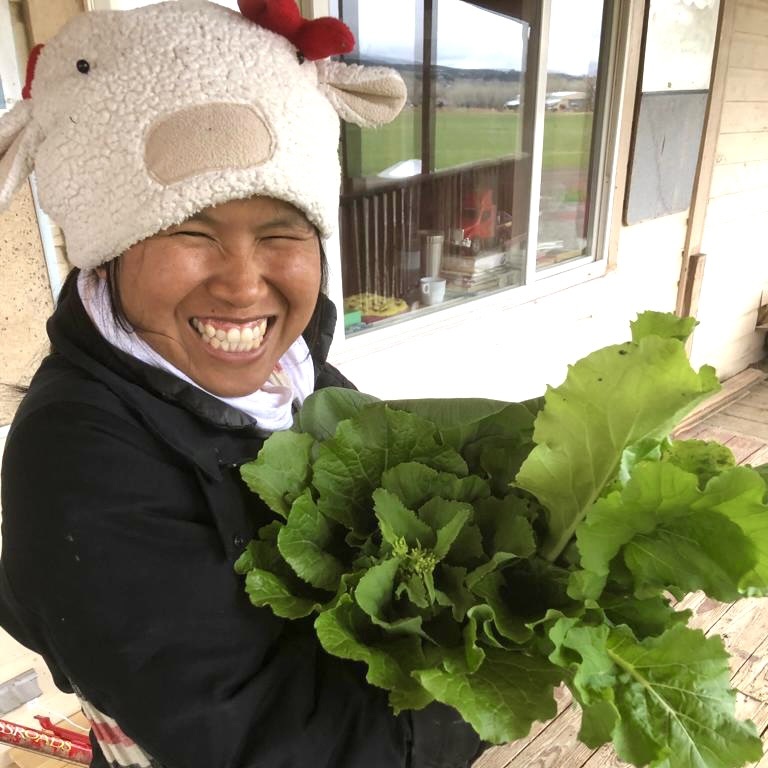
Bekana Mustard
This month, we bring you the story of a mustard defying the odds: Bekana mustard! This mustard has everything. Fast-growing. Beautiful. Mild flavor to eat raw in salads. Crunchy stems to cook like bok choi. What could go wrong with this plant?
Truelove Seeds describes the history of these seeds: “Japanese soldiers returned home with Chinese cabbage seeds after the Russo-Japanese war in the turn of the 20th Century. Bekana (often called Tokyo Bekana) is believed to be a selection from these early Chinese cabbages, and is still grown in rural Japan today.” As this popular variety came out of traditional food systems and into industrial agriculture, something changed with the seeds: many commercially available versions of Bekana are F1 hybrid seeds.
Hybrid seeds are complex and often demonized. Here’s a quick explanation: plants cross-pollinate quite easily. A commercial F1 hybrid variety is produced not from random cross-pollination, but from carefully controlled plant breeding where separate mother and father lines are crossed together in a controlled location. The goal is a child generation (F1) has the best traits of both. If you save seeds from the F1 hybrid, the grandchild generation (F2) can be unstable, exhibiting recessive traits from both parents. It can take up to 7 generations to really get things back in control, so people just produce new F1 hybrid seeds each year.
Why hybrids? They grow really well. They’re bred to be resilient plants that perform well in many conditions. They’re very uniform: diversity has been bred out, which is great for growing big quantities. And there’s a mysterious thing called “hybrid vigor” where hybrids just do better for reasons unknown to science. Hybrid plants are everywhere: the average person in the United States gets most of their calories from hybrid plants.
But what could go wrong? Two main things. First, hybrid seed systems are incredibly complex: you need separate, isolated farms to grow 3 separate lines of seeds: the mother, father, and F1 hybrid seeds. So, hybrid seeds are industrial by nature. Second, male sterility is often used in hybrid seed production to control which plants can pollinate other plants. That means that male sterility can be bred into our seed supply. If male sterility isn’t used, hybrid seeds are incredibly labor intensive: people have to go into flowers to remove the anthers (pollen-producing parts) to ensure that a mother plant receives pollen from the father plant instead of self-pollinating. If you purchase hybrid tomato seeds, you’re buying hand-pollinated seeds, usually produced in countries where labor costs are low.
Having grown our Bekana seeds for 4 generations, and we see our seeds as stable. Hooray! For the past two years, we’ve grown our Bekana mustard seeds for our friends Avalon and Ross at Vibrant Earth Seeds—you can buy them there. This year, we’re also growing Bekana for friend Laura at High Desert Seed. It’s a joy to bring these seeds into our local foodshed, and we hope that this delicious variety of mustard finds many bellies!
For more about hybrid seeds and local food security, we recommend:
Uncertain Peril: Genetic Engineering and the Future of Seeds by Claire Hope Cummings
Seed School (designed and offered by Bill McDorman, also offered online by Seeds In Common)
Seed: The Untold Story (feature film)